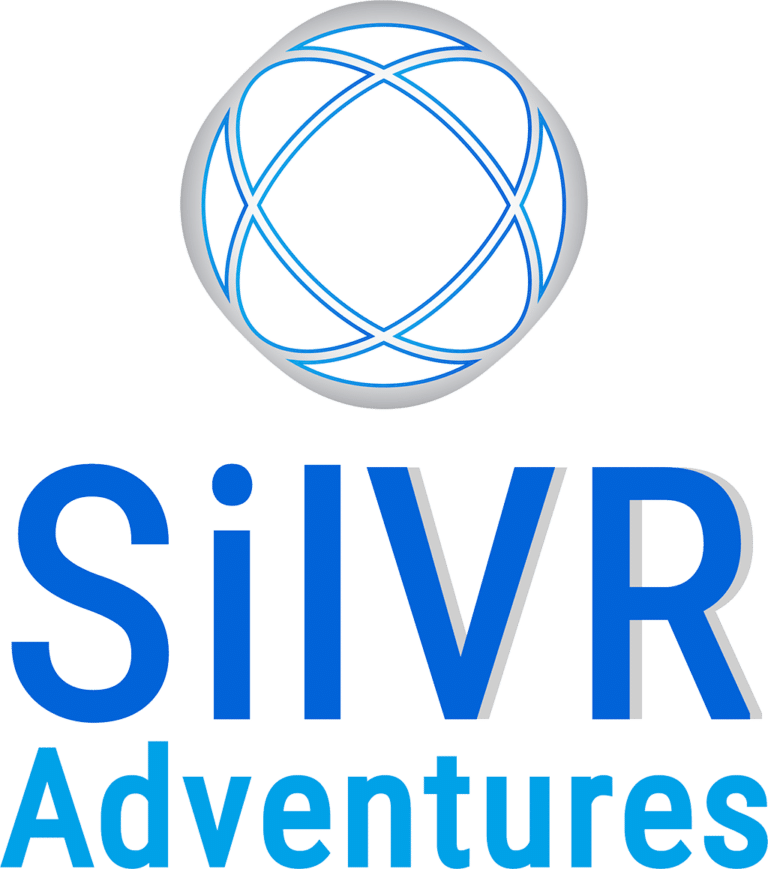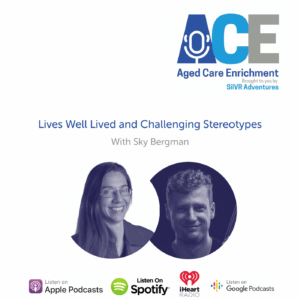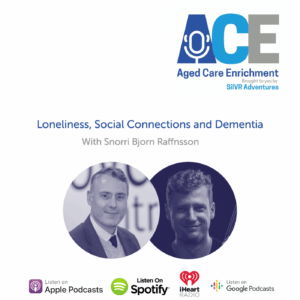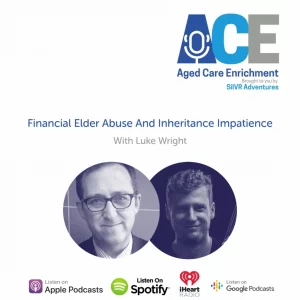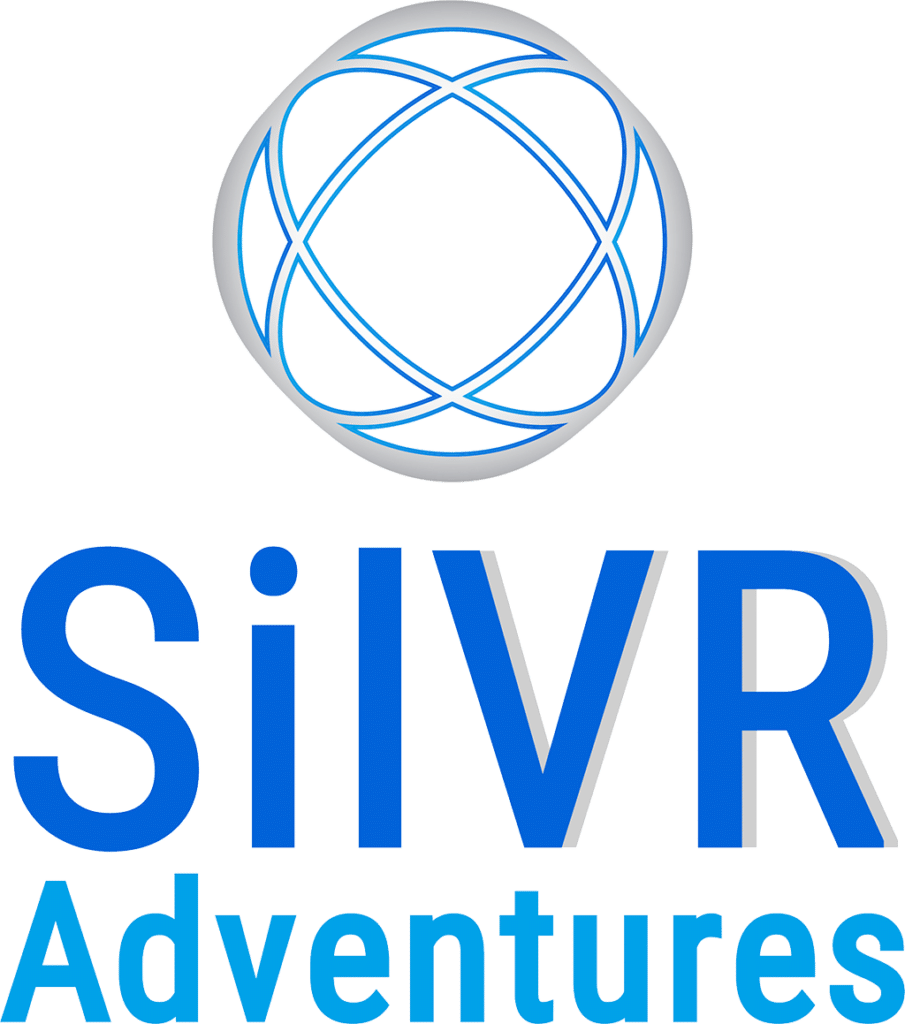Karen Lake is the operations clinical and quality manager at Ryman Health Care in New Zealand, where she’s recently been involved in the creation of a new model of care for people living with dementia.
She has a wealth of knowledge about how to implement successful person centered programs, and balancing issues such as the dignity of risk.
This conversation is all about getting putting the individual at the center of the process and being proactive to prevent the onset of vascular dementia.
You can hear Karen Lake talk more about the model of dementia care that she helped develop here.
Transcript
Ash de Neef: Karen, thank you so much for joining us on the podcast today.
Karen Lake: Hi Ash
Ash de Neef: So Karen you’re currently the operations clinical and quality manager at Ryman healthcare. One of the largest healthcare providers, aged care providers in New Zealand and Australia.
Can you give us a bit of background as to how you got there?
Karen Lake: Well, I first started working in residential aged care at the age of 15, where I worked as a caregiver. In my school holidays in facility called Toorangi home in Ashburton in the South Island. And that’s where I first got a taste of working with the elderly and I have, I’ve been working in aged residential care predominantly since then.
So for 30 plus years, and I have to say that there is not a job in the care facility that I haven’t done. I’ve worked as a caregiver, as an activities coordinator, a chef, I’ve done the house keeping. I’ve worked as a registered nurse, a clinical manager, a facility manager, I’ve worked as a regional clinical quality manager and now as the operations plan, home quality manager for Ryman healthcare.
And it wasn’t until I came into that position, they’ve started to really think about the, um, how we can influence positive outcomes for our residents. And that’s when I first started to look at quality care and what that means for people and what we could do. To improve outcomes with people all the time.
So I’ve moved into this place where I work, uh, with a team on innovations and on generating, new ideas and implementing new programs that assist people to have, a good quality of life in quality of care. In part of that was just identifying the difference between those 2 things as well. So, yes. it’s been a heck of a journey, we’ve got 38 villages throughout New Zealand and Victoria to operating in Victorian and another five coming online there.
Ash de Neef: Wow. So it sounds like first of all, you have such a wealth of experience across the industry. And now the position that you’re in affords you a really great overview of, of what’s going on, not just in New Zealand, but also Australia. You said recently, you’ve got quite a few villages here. You touched on this concept of quality of life and quality of care. Can you talk maybe about what quality of life is and how that differs from quality of care?
Karen Lake: When we think about quality Kia, which is something that we’ve focused on for a very long time. We think about, working with people’s physical deficits and care planning to, address their diagnoses and to work with them, to reduce those deficits.
Whereas we think about quality life as a completely different thing for me. Quality of life is what somebody defines it to be and what brings value into their lives and can be a number of things. And when you think about working with somebody to look at your identity and what that means and what identity is made up of, and you talk about working with individuals, and looking at various strengths and characteristics.
Quality of life for me is about those bring joy to a person on any given day. And I think some of the work that I’ve been doing over the last two years, working on the new dementia model of care has really had, we really had to drill down and think about what quality of life each individual means.
You know, and it’s not about addressing, is about addressing health deficits and reducing some of the things that get in the way of living a meaningful life. But it’s also about identifying the things that bring joy to a person’s life. And as key providers we have responsibility to partner with people to bridge the gaps between what they can do to keep doing those things and what they can’t do.
And an example of that is, if I’m an avid photographer and I’ve always enjoyed walking in the hills, but I had a stroke which left me with a right side, a weakness a few years ago, and I could no longer walk in the hills. Then somebody partnering with me would enable take me out and to the hills or the bush we’d have a camera, we’d have the walking frame, we’d have regular breaks. We’d be in a position where we have to understand that we’ve moved from film to digital cameras. We would have an opportunity to learn how to download the images onto a computer and to edit them. And so all of those things means that the person can still stay actively engaged in something that they – that brings them joy.
It also enables them to learn something new, which is important with dementia as well, It’s one of the things that we can do to prevent dementia or to create more neuroplasticity in our minds. So that means if we do get dementia that we have other ways of, other paths to communicate through when some of the neurons through regularly used paths start to deteriorate.
So it’s one of the things that preventing dementia, learning new things -Yeah. So I’ve been on a two year journey developing a new model of dementia care nd when I first started on the journey, I went over to the UK and Australia and various different places. And I looked at lots of different models of care.
I interviewed people living in nature. And I interviewed people who caring for people living with dementia. And I visited a lot of places, I spoke a lot of specialists and I came up with a framework. I couldn’t find anything, any model here that I wanted to put into our villages. And I came up with a framework and then I started working with a dementia care specialist in the UK called Carolyn Bartel from three spirit UK. And she and I have been collaborating this project for quite some time. And we wanted something that would align with the international desire to bring dementia out of the closet – de-stigmatize dementia and create dementia friendly communities. But we also wanted something that would enable people living with dementia to have control in their lives.
To have happiness in the moment and to live the lives that they chose to live. And it’s not often what happens in dementia care. A lot of the time what we do is when we give people dementia care, we move too fast for them, we don’t enable them to utilise the skills that they have. We generally, what we do is we have this idea that anybody living with dementia, no matter what type of dementia they have the same signs and symptoms, and it’s not true. What’s actually true is that various forms of dementia will affect that person’s brain in different ways and also the level of resilience over life, impacts on their ability, on the way that they experience the dementia that they’re living with.
And so people are intrinsically individualistic and your experiences are quite different. And the other thing we need to understand os that dementia is progressive. So the person’s losses throughout the journey occur throughout the journey. So initially people may, can actually live quite well with dementia as long as they’ve got some tools into place to help them like some memory aids, those sorts of things, supportive people around them.
And then over time you may need to do more and more to bridge the gap. And I think as care providers, we often do things for people instead of being with people. And the way forward to dementia care is to partner with individuals and support them to the their lives.
And I’ve walked into a lot of villages where I see people corralled into small spaces to be entertained by people and that results in a lot of agitation. And the reason for that is, people living with dementia experience, far more stress than people who aren’t living with dementia. Noises can upset people, it’s really confusing and people don’t need to be sat down and entertained all day.
People need to be supported to live a life that they choose to live, and I think one of the best things I’ve seen come out of New Zealand on the last couple of years. Alzheimers New Zealand commissioned Litmus to do research on 49 people living with dementia to identify what they really wanted.
Because often in the past, we haven’t asked the people what they want. So this part of the stigmatization and the assumptions that people have dementia cannot contribute in this way, in which they came, I know people. And I’ve spoken to people that I’ve interviewed that say they don’t speak out because of the stigma out there.
And yet we really need to hear the voice of the people. Anyway, the outcome of the Litmus, research was the dementia declaration “our lives matter”, which is now widely used throughout New Zealand, as a guide to understand what people living with dementia really want. So we’re really hearing more and more from people living off to nature.
People don’t need to be defined by dementia you know, they’re individuals in their own right and have a lot to contribute to society.
Ash de Neef: It sounds like the individual is really at the center of the care process. So we need to understand firstly, the individual’s experience in living with dementia and then what they define as quality of life and what things they value and through understanding that that’s how we can provide better care.
Would you agree with that?
Karen Lake: Yes. So interviewing residents living with dementia, we would speak well for 15, 20 minutes or more. And from there. I generated what we call the ten elements of hapiness that are woven into the program and into our model care. They were kindness, love, connectivity, safety and security, peace, joy and laughter, identity, wellbeing, and dependence and self worth.
They were the things that came out of my interviews with people living with dementia. And from there, what we did was we created a new qualification. It’s about to be recognized on the NZQA framework in New Zealand, the formal qualification for our staff, and we created a E-Learning Talks. We started to work with our staff on actions that they could take to help generate those feelings in people to bring that joy. Because for a person living with dementia they may not remember what happened 15 or 20 minutes ago, but they remember good feelings. AndI would say that a lot of the time we need to work with people to bridge the gaps and you need to be really sensitive about how you bridge those gaps.
So working in partnership with a person in order to be with them, rather than do for them, because people living with dementia, take a little bit longer to process information. Staff who are, have a lot to do can often rush people and disempower them, and so preventing them from having that ability to do things they can do and enjoy.
So it’s just bridging the gaps and I talked about the lady who likes to do photography and how we can get out and about with her and do that, but it’s also about generating joy in a person’s life. Now, how do you do the reminiscence bump?
Ash de Neef: No, I haven’t.
Karen Lake: Okay. So the reminiscence bump is a period from 10 to 25 – some people say 30 – where we lay down autobiographical memories, so that encoded in our mind and we retain those. And some people living with dementia although they don’t retain recent events, they will retain a memories from their reminiscence bump, and we have an opportunity in there to do a few things that will bring joy to a person’s life.
And one of the things is that we know that music, if we have music from a person’s reminiscence bump it can generate a lot of joy for one thing. But the other thing it can do is it generates memories like well formed memories. So one of the things I found out when I was interviewing family was they would say things to me like.
I’m always the person that has to initiate conversation, mum or dad doesn’t, initiate conversation anymore. It’s very hard to ask the person about recent events because they just don’t recall recent events, but it is very easy to ask them about a period of time which they remember really, really well.
So then we started to think about creating an app where a reminiscence bump app where we could download photos and memories and create playlists for the person from that period of time. And that we could create an experience where family could have conversations with their loved ones, where their loved one would speak fluently about an event and about memories.
And there’s a lot of joy in that. And we can generate those things. And today, in an example, of that is if somebody loved to travel. We can set up photographs of the travel that they did in that time, or we can do the thing that, you know, SilVR Adventures does. We can see that an opportunity for people to travel virtually to different places and have they experienced and at the same time we can work together to cook the food from their culture. And we can have other people that are interested and it generates conversation between people.
And you think that people have this idea that people living with dementia cannot converse, over a long period of time about things, but they can I’ve seen these things. I’ve been to events where people have talked for half an hour more on these really strong memories in that we can actually help foster those memories or bring those memories back to life of various ways.
And I think that we have a responsibility to understand individuals and to do these sorts of things with them because as we age and we lose this ability to get out and do the things we want and love doing, we start to experience what I think is a shrinking world, but in this age of IT and technology we can really work to, to actually negate that conceived of a shrinking world.
People living with dementia experience more stress than people living without dementia, and so they have more cortisol in their bodies. So we need to be doing things that enable them to have a release of the feel good hormone.
So I started doing little bit of an experiment. I thought to myself. Okay I know this thing about the reminiscence bump, and I know that between the age of 10 and 25 for me is going to be great for me when I get to meet chip, because after studying it for two years on, I’m fairly certain that I’m on my way .
And so I created my own playlist and my own identity map, because we have identity maps for people to actually ascertain what makes them tick. And those things are things that make me tick are characteristics that are seen or unseen to me. So my values, my social norms, the way I was raised, the routines that I have, you know.
Ash de Neef: Hmm. Can you explain the difference between entertaining people and providing meaningful activities for them?
Karen Lake: So in the old days, what we did with dementia care is that the caregivers would run around, getting everybody up, bring them into the living room and then the activities coordinator would take over.
And they would entertain people they’d have quizzes, they’d have singalongs, they’d have game shows they’d have those sorts of activities and people could either passively or actively being engaged.
And then what you would do is you’d have people spinning out of that room because there’s too much audio and visual stimulus. You’d have what people term is, behaviour issues. I don’t like to use the word challenging behaviour for me it is distressed behaviour people becoming distressed because it was too much stimulus.
They spin out of the room and off they’d go down the hallway, which had no stimulus and then they’d circuit back around and come into the high some environment again. And then staff would corral people back into the area, that to meet as entertaining people and it goes against what I believe which is partnering with people to live the life that they choose to live.
So we’re not here to keep people in a holding pattern. We’re here to work with people and recognize their rights, recognize who they are and work with them to the best life that they can live.
And then meaningful activities for me is about the partnership. That’s about Grace has always been an avid gardener, so actually Grace and I are going to go do some gardening today.
Also that everybody has a job to do so giving to the community that we live in. So if Grace has always been an avid gardener then we’re actually going to go out and weed the garden today and I’m also going to bring the herbs in for soup. Leslie has always loved cooking. She’s cooking the soup for today and we’re going to be eating it. So it’s about activities of life engaging in activities of life, those sorts of things.
So that’s the difference living life or being a passive bystander?
Ash de Neef: Absolutely. That’s, that’s fantastic. I think it really, there’s such a strong common thread here of respect for the individual and with those people who, who are living with dementia, recognizing that they are. They are people who are living and they also have a condition and finding ways to make their lives purposeful and engaging, and really connecting with them with the things that matter to them most, instead of just finding what’s easiest or quickest or most economical.
Do you think that’s a new approach to aged care or is that something that’s been going on for a while?
Karen Lake: I think that some models of care, get it right. And when I started to look at various models of care, there were two other models which I really liked. And I walked into a retirement village in London and when I walked in the door, I saw residents who welcomed me into the home.
They engaged with me, I walked around and I saw little nooks and crannies where people could linger for a while and being engaged in the things that they wanted to be engaged in. I saw residents making their own cups of tea, you really have to think about risk versus, you know, quality of life.
There’s a lot of places that want to put the kettle away. You know, our new model here has working in kitchens, our residents work in the kitchens as well as the staff, you know? So this particular model, I was actually truly impressed with because cause it was a very peaceful environment and I saw people just living their lives freely.
I liked it but I wanted a little bit more for our people, you know, so I kind of started to think about the framework for the foot model we’ve got.
I started to think about the impact on environment on people living with dementia and that we needed really easy to navigate environments and I started to think about, behavior as a form of communication, which is actually natural as a person’s brain starts to deteriorate, people will find other ways to relay the information that they want to relay.
And it’s up to us to be able to interpret what it is that’s being said, to take time to listen. And to understand the person and all the various ways that they communicate.
Ash de Neef: There’s a, a lovely point there I wanted to touch on, which was, you said that it’s important for caregivers to interpret behavior, not as troublesome or challenging, but rather as an attempt to communicate, and it is a means of communication. Do you think that it’s important that the people who are providing care have a knowledge and an awareness of the people they are caring for? I can imagine that would be something challenging in aged care facilities to get staff who are regularly there to, to connect with people.
What do you think?
Karen Lake: Oh, absolutely. Yeah. I think it’s very important. That people who are working with people living with dementia actually have a really good understanding of a number of things. What dementia is in itself, the different types of dementia and how they affect you. And individual and their identity, their level of resilience and where they are on their journey of dementia as well.
And so that they’re able to not just understand dementia, but understand individuals. One of the things that we have is a qualification, and as a manager, it’s mandatory to have all caregivers working in dementia care, complete a qualification within a specific timeframe. We decided that we were going to create this qualification and have the staff complete it immediately after orientation in minutes and they had a really good understanding of it.
But we also developed an e-learning qualification that all Staff to 6,000 staff have to complete this e-learning qualification. And we launched the first of those qualifications as modules is four quadrant on last Friday to 6000 staff members and already over 1400 have completed.
That qualification or that e-learning module. And from there, people will have a really good understanding of what the nature is, the different types of dementia and how those different types of dementia affect people in different ways. And they also have a good understanding of the nine ways in which we can prevent dementia.
This qualifications isn’t just for staff. It’s also for residents, and their families. And so by the time they get through the next one, which is called making sense of my world, which is about understanding an individual, working with teams to support them or partner with them, the life that they choose to live and to live that life well and to do them in a way that generates moments of happiness for them.
And then the next quadrant is districts in the environment, which is about understanding why behaviour is a form of communication, how to work with people who are expressing behavior in its various forms, but also how we can use environment to reduce stress for people living with dementia, and the then last quadrants quality in life, which is about, um, generating quality or supporting people to have quality of life.
That was one of the things that I wanted to elaborate on. People living with dementia have higher stress levels than those without that means they have high cortisol levels and what we want to do is generate through less feel-good hormones to counteract this. I did a bit of research on this and then decide to experiment on myself, looking at ways of reducing cortisol and increasing those feel good hormones.
So the first thing that I did was I created a playlist of my favourite music from my early twenties. Then I decided I was going to play this for walking up a hill briskly, and I know that exercise releases dopamine. I also know that if I’ve had my face in the sun for 20 minutes. Thee sunshine will hit my retina and I will have a release of serotonin.
And I always feel, I have to say at this point, Please don’t look directly at the sun. Don’t need to do that. Just need the sun on your face. So a brisk walk in the sunshine, listening to my reminiscence bump, favourite music playlist, will reduce cortisol levels in my body increase feel-good hormones and cause me to experience one of those random moments of happiness.
And the first time that I did this, I went off on my usual walk up the hill and I arrived home 10 minutes earlier than usual. At which point my husband accused me of not completing the full route, but I was just feeling great, invigorated and happy. And this is just an example of one of the things that’s factored into the program that we’ve developed that supports people have feelings of happiness and wellbeing.
If you think about dementia. Okay. So by the age 65, your chances of developing dementia double every five years. Wow. Yeah. And so what we want to do as we age is we want to actively put things into place that prevent dementia. Or help us to live well with dementia if we develop it. And so there are nine ways that, things that we can do to prevent dementia and within those nine ways and sort of, so, one way which I think which I’m really attracted to turn, it’s a thing called, using your brain neuroplasticity have you heard of that developing neuroplasticity right?
So I have a friend who just does sudoku every day, because he’s wanting to prevent dementia and I say to him, actually Calvin, you can’t just do sudoku every day, you’ve got to do something that challenges your brain , you’ve got to grow new neurones. So you’ve got to learn to play a musical instrument or you’ve got to learn a new language and those sorts of things.
So it’s not just about doing something with your brain every day, it’s about doing something that challenges your brain and so. That creates neuroplasticity so that if we do get dementia that you’re able to have other ways of relaying, we’ve got more neuropathways and have other ways of relaying information that you’d like to relay.
Anyway, we are jumping around a bit aren’t we Ash.
Ash de Neef: Yeah. It’s great. Can you elaborate a little bit more on these nine ways that you can reduce the risk of dementia?
Karen Lake: Yes. So you can prevent dementia. You can particularly prevent vascular dementia. The reason for that is because you want to look after your new vessels, right?
So you want to keep your blood pressure down. You want to stay physically active. You want to, keep your weight down, eat well, keep your weight down ollowing a healthy diet? Limit alcohol and you want to maintain social connections. So, loneliness as a dreadful thing for people, for all people, really, but not just people living with dementia/
One of the things for people living with dementia is that, there’s a certain level of awareness for people as they are developing dementia and they become concerned about social interactions and they start to isolate. Or be ostracized from the society that they’re in. And so they actually just compounds the feelings of loneliness.
So you would stay socially connected. The best outcome I’ve seen was with a couple where they decided that they would tell all of their friends that he gentleman had dementia. And what that meant was they got an enormous amount of support. Both of them got an enormous amount of support. And also the people around them had far more compassion.
So they, what they didn’t do is they didn’t judge the gentlemen when we started to do things like work against social norms, do things like cue jump because people think you jumping people think you jumping it’s rude, but in actual fact yeah.
Ash de Neef: You mean jumping in front of a line?
Karen Lake: Yeah. So in actual fact they didn’t slight him, if he jumped in front of the line, if he repeated a stories that didn’t get impatient with them.
I had a friend who worked with many, many years. And we used to work together in the hospital and Gramt developed (It’s not his real name), Grant developed dementia. And I was nurse and he was a senior orderly at the time in that hospital and he’s now in his eighties and he’s got quite advanced dementia.
Every time he sees me, he does still recognize me though. And we talk about the hospital and he tells me off the story about when he was at the hospital and he is the senior orderly, and one of the nurses was talking to him in his office. And one of his orderlies came walking across the compound. And quick as a flash, the news junk behind the door and came out straightening herskity when the orderly walked in and he was absolutely mortified that she’d done this, you know, played this joke on him. And the orderly who walked in was very awkward and shuffled around and left. And that was a great story that had given him a lot of joy in and had some laughter at the time. You know, that was kind of fun. And he continues to tell me that story every time I see.
And every time he tells me the story I listen as though it’s the first time I’ve heard it. And I laugh because it is a great story. And people often don’t listen to repeated stories from people who are living with dementia. And I really encourage people to take time to do that because it does a couple of thoughts.
One is it really validates them as a person and also that human connection is really, really important and feelings matter. So anyway, let’s move on maintaining regular health checks because an actual fact, hearing loss is one of the risks of dementia so you need to take care of your hearing because you know, as you lost your hearing, you become disengaged with other people, being more isolated from the world around you and you need to take care of your hearing.
You need to challenge your brain and build neuroplasticity and not smoke because smoking has such a dreadful impact on your arteries and really significantly increases your risk of vascular dementia. So that other ways that you can. Yeah. You can actually make a difference to your life.
Um, if you get out of here and exercise, eat well, don’t drink too much and don’t smoke and stay socially connected and get your hearing checked.
Ash de Neef: Yeah, I want to jump back to what you’re saying about the gentleman you used to work with and, because you mentioned that as you said, not everybody is going to listen to the same stories repeatedly, but it’s kind of an act of love, right?
To sit there and to listen to someone to show that you’re there and it’s not about. The person who’s receiving the story. It’s about the person telling the story, right?
Karen Lake: Yes it is. It is about the person who’s telling the story. And I think the more we moved towards a dementia friendly country, or even a dementia friendly world because there’s a real drive now to address stigmatization in dementia to address the beliefs that people have about people living with dementia.
To enable people with dementia to have their voice, and also to accept, the things that people have no control over. So if a person is unable to lay down memories of recent events, if they have difficulty expressing themselves well or finding the right words or completing familiar tasks, or they’re confused by time and place.
There’s a lot that we can do to engage with people living with dementia. And that supports us to bridge the gaps with those deficits that are appearing. And I think that we have a responsibility to do that.
Ash de Neef: We’re almost at a time today. Karen, I’ve just got one more question. What does leadership within the industry look like
Karen Lake: within the age care industry?
Ash de Neef: Yeah sorry within aged care.
Karen Lake: I really think that we need to be moving to a place where we support people to reverse deficits and we need to be creating programs that give people an edge on ageing. So we need to create some programs that help prevent dementia that enhance the five ways of wellbeing in people’s lives.
Help people stay really connected and that we need to be thinking really smartly about the fact that we can improve ageing and that, people actually, we used to think people moved into retirement homes and that was their last part of the journey. But it’s not, it’s a new phase of living.
You know people live rich exciting lives in retirement and yeah, they want to make the most of it. So I think we’ve caught a responsibility to support people to, to really live well.
Ash de Neef: Wow. That’s, that’s fantastic. That’s, that’s a fantastic end to our conversation. Thank you so much for joining us today on the podcast.
Karen Lake: Thanks Ash
